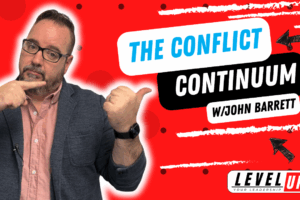The Need For Truth
“The truth is out there.” What a great quote from the 90s hit show, The X-Files. This mantra directed the characters as they searched for extraterrestrial life. It was their compass to guide them towards fulfilling their mission. In the same way, this mantra should guide us as leaders as we navigate our influence. Truthful leadership should not even be a term, but it is. The only reason we need truthful leadership is that it has been violated and now we term it something separate from just leadership. In its purest sense, leadership should be truthful by definition alone. It should be assumed that all leadership would be girded by truth, but unfortunately, this isn’t the case.
In a world that is becoming increasingly untruthful with media, politics, and manipulation, it is hard to know if things are real. The majority of people are more skeptical than they’ve ever been throughout history. This uptick in questioning what is real is bleeding over into every area of our lives. You can’t even access social media without coming across fake pictures, stories, and news at any moment. So, where does this leave us? The answer…wanting to know if the truth is out there. And in the context of leadership, it’s making leaders have to prove to be truthful more than ever before. Truth always triumphs over fiction. Leadership author and speaker Simon Sinek said, “It is better to disappoint people with the truth than to appease them with a lie.”
So, how do we become leaders that are trusted as truthful?
1) Be Vulnerable
The higher you go, the more temptation there is to close off. This is why many highly successful entertainers end up ruining their lives, or worse, end up taking their lives. We have been told that Vulnerability is a sign of weakness, but studies have proven this couldn’t be further from the truth. In fact, Vulnerability is a sign of stability. Author and speaker Dr. Brene Brown teaches that “Vulnerability sounds like truth and feels like courage. Truth and courage aren’t always comfortable, but they’re never weakness.” You have to be vulnerable in the way you carry yourself and your communication with others. The more you hide from those around you, the less influence you’ll have with them. Honesty keeps you from burying yourself in lies and then having to remember all of them to cover yourself.
2) Be Credible
Truth has to be substantiated, or it’s not true yet. Ensure you get all the facts and do as much research as you can before you say something out of turn. Many leaders feel pressure to share anything and everything without making sure it’s credible first. Once something is said, it is very difficult to take it back, so be very careful and selective in how you open up. Better to simply say, “I don’t have an answer for that yet,” than to ignorantly talk. People feel much better about not getting an answer than they do about feeling like you’re making things up on the spot. Just because you’re a leader doesn’t mean you always have to have an answer. You will gain credibility when you have shown credible insight.
3) Be Digestible
Everything that’s said needs to be true, but not everything that’s true needs to be said. There are times you have to cut up the truth into bite-sized pieces and plate it over time. Just as you wouldn’t give a toddler an adult-sized bite of steak, you don’t give your team a bite they can’t handle yet. This is a hard line to tow when it comes to how much you should share. You have to correctly assess the situation and open up as much as possible without it being too much for people to take in at once. Think progressively vs. holistically, meaning be wise in how much you divulge at once. Give people time to digest the truth before you cram more in them.
“Everything that’s said needs to be true, but not everything that’s true needs to be said.”
The truth is out there, but you must be intentional about it. If you violate one of these three elements, you’ll limit your influence and impact greatly. However, when you embrace sharing a vulnerable, credible, and digestible truth, you’ll be a leader worth following.









